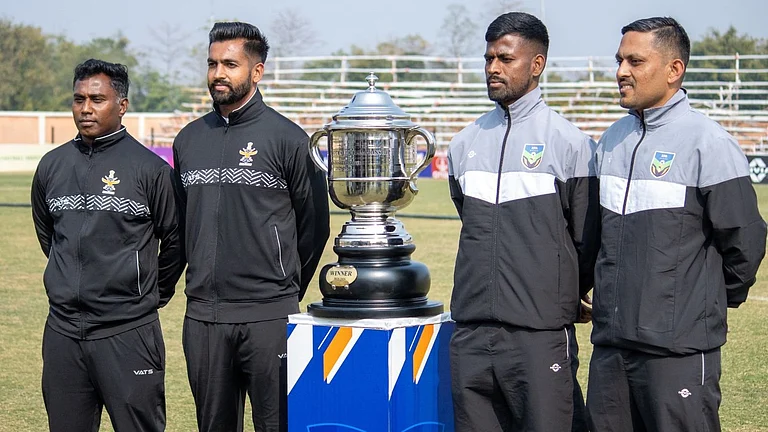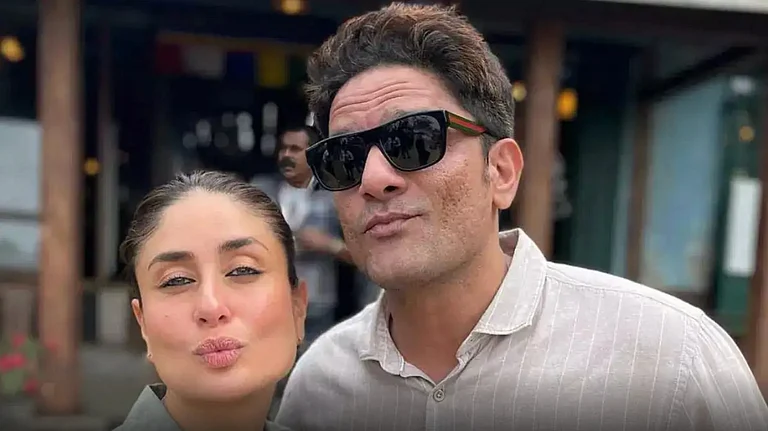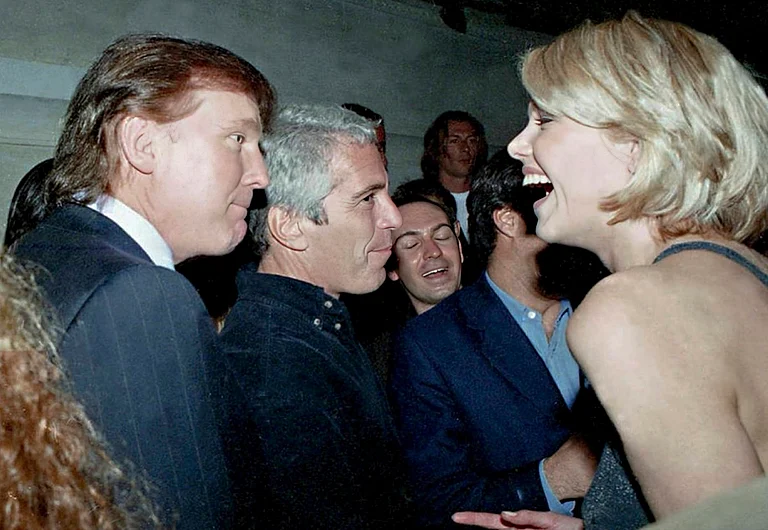The notion that all is not well in the Pakistan Army has beenreinforced with the unprecedented execution on August 20, 2005, of Abdul IslamSiddiqui, a member of the armed forces, on charges of plotting to assassinatePresident General Pervez Musharraf in collaboration with the Jaish-e-Mohammad(JeM)
The Military Court documents identify the executed soldier asAbdul Islam Siddiqui (Army No. 8831068) of the Defence Services Guard Companyattached to the Punjab Regiment, who was found involved in a conspiracy toassassinate General Pervez Musharraf by blowing up the Jhanda Chichi Bridge nearthe 10-Corps Headquarters in Rawalpindi with the help of C-4 explosives onDecember 14, 2003. Musharraf, however, survived the attempt, apparentlydue to the signal jamming device that prevented the remote control triggers fromblowing up the dynamited bridge when his motorcade passed over it. The bridgeblew up less than a minute after the presidential motorcade had gone by, andMusharraf had a new lease of life.
The other charges against Siddiqui include abetting mutinyagainst Musharraf and attempting to persuade a person in the military to rebelagainst the Government. Siddiqui was also charged with receiving terrorismtraining at Bhimber in Jammu & Kashmir (J&K) during August 2002 at a Jaish-e-Mohammadtraining camp. He further defied military orders to fight in South Waziristanagainst fellow tribal citizens. The prosecution alleged that the soldierimproperly remained associated with the Shuhada Foundation, anorganization of the Pakistan armed forces (PAF), several of whoseofficer-bearers wanted to kill Musharraf. The Foundation was actually created bythe Inter-Services Intelligence (ISI) to support bereaved families of those fromthe Pakistan Army who fight the Indian troops in J&K. Siddiqui was finallyhanded down a death sentence in mid-May 2005. He made a mercy petition toPresident Musharraf, which was turned down in June 2005, and the soldier wasfinally hanged in August.
Besides indicating the growing influence of several militantgroups in the Army, the execution demonstrated that the Islamists from withinwere not exactly in step with Musharraf, and that something may be brewing inthis most-disciplined Force, which might not be the sort of beverage Pakistan'sfirst commando President would care for. The chasm has deepened continuously inthe aftermath of the 9/11 terror attacks because of Musharraf's half-heartedattempts to give the Army a liberal outlook, acceptable to the United States. Aserious problem has, indeed, been simmering, and Musharraf had himself admitted,after the two failed attempts on his life in December 2003 in Rawalpindi, thatArmy officials were involved in the conspiracy.
Evidence of trouble within the forces has been trickling outin the form of several judicial decisions. In January 2005, after court martialproceedings, a military court headed by Lieutenant-Colonel Sultan Noor Ali Khanof 96 Medium Air Defence Regiment, sentenced three officers of Pakistan AirForce to terms ranging from two to nine years for alleged links with the Jaish-e-Mohammad.Nauman Khattak, 18, and Saeed Alam, 19, were sentenced to two years in prison,while the third airman, Munir Ahmed, was awarded a nine-year sentence.
Three months later, in March 2005, the trial court handeddown a death sentence [in absentia] to another accused in the conspiracy toassassinate General Musharraf, Naik Arshad Mahmood of the Special Services Group(SSG) of the Army and others, including Havaldar Mohammad Younis of the 98 AirDefence Regiment of the Army, who was awarded 10 years hard labour, and LanceNaik Zafar Iqbal Dogar of the SSG, who abandoned the mission halfway and becamea key state witness at the Attock trial.
Six months later, on September 18, 2005, another militarycourt comprising Major General Ahmad Nawaz and Brigadier Mumtaz Iqbal, sentencedMajor Adil Qudoos to 10 years in prison, Colonel Abdul Ghaffar to three yearsand Colonel Khalid Abbasi to six months. Major Attaullah, Major Faraz andCaptain Zafar were dismissed from service. These sentences were handed down acouple of weeks after the execution of Abdul Islam Siddiqui, who was executedafter being tried in a closed-door Field General Court Martial, headed by aMajor General of the Army.
Again, on October 4, 2005, another military trial courtawarded a death sentence to four junior employees of the Pakistan Air Forceallegedly involved in a failed assassination attempt on Musharraf at the JhandaChichi Bridge on December 14, 2003.
As things stand, the silent tug of war between Islamists andReformists appears to have reached a boiling point. Despite Musharraf'smuch-trumpeted efforts in recent years to purge the military of jehadisand Islamists, many renegades have worked their way to the top echelons of the armedforces. Many of these deeply resent Musharraf's siding with the United States inits war on terror and Pakistan's subsequent strategic losses in Afghanistan.Many of them criticise their ambitious chief - albeit, in private - for wearingthe two hats that he currently dons: military (Army Chief) and civilian(President). For the first time in the country's history, the intra-Armyideological and individual differences are being made public by the anti-Musharrafelements.
These fissures, though, rarely spilled out in the openthrough whispers in the corridors of power or hints in newspaper articles. Allthis changed in August 2003 following the arrest of a group of officers from thePakistan Army for their alleged links to al-Qaeda and other extremist militantgroups. These arrests were followed by the release of a letter in October 2003,allegedly by renegades within the Force, written on a GHQ letterhead andsporting the monogram of the Pakistan Army. The letter, which launched ascathing attack against Musharraf for his pro-American policies, literallybrought to the fore the raging ideological conflict and internecine rivalrywithin the Pakistani Army. Addressed to the "national leadership", theletter described Musharraf and his cabal as national criminals who helped theAmericans, Jews and Christians to kill Afghans: "Pervez Musharraf hasturned Pakistan - the fort of Islam - into a slaughterhouse of theMuslims". It stated further,
We, on behalf of the Pakistan Army, assure the nation that it is your Army - the army of Islam and Pakistan, and we expect every member of the Parliament, from whichever party he belongs, to work for the sovereignty of the Parliament.
The creeping coup of conservatism in the Army is a legacy ofthe country's third military dictator, General Zia-ul-Haq, under whose commandthe state policies were centered on Islam; religious sermons by fanatic mullahsin military units were encouraged and even Tableeghi Jamaat memberswere allowed to preach in the garrisons at will. Zia was the first Army Chief toattend the annual congregation of the Tableeghi Jamaat at Raiwind.Encouraged, many of the officers began to openly associate with the TableeghiJamaat, and to demonstrate their religiosity through act and visiblesymbol, something Army personnel had avoided in the past. That this freedomcould be exploited by militant mullahs was not a consideration with the thenmilitary leadership, which had US blessings for waging the so-called Afghan jehad.
Even after Zia's death on August 17, 1988, people remainedcareful to pay at least lip service to his legacy. Musharraf himself, now avocal proponent of enlightened moderation, praised Zia, and on the latter'sdeath anniversary in August 2004 declared: "He was a patriot and a veryGod-fearing person". He proved his affection for Zia further by inductingthe latter's elder son [Ejazul Haq] in the Federal Cabinet in 2004 as Ministerfor Religious Affairs. Even after Zia's death, the Army, largely as part of itsstrategic vision for the region, actively supported and promoted the Taliban inits formation and ultimate seizure of power in Afghanistan in 1996. The externalfactor contributing to this trend was Pakistan's active involvement with theAfghan resistance against Soviet military intervention in Afghanistan and thesubsequent activism of the Afghan mujahideen.
The struggle against Soviet troops in Afghanistan enabledconservative Islamic groups to obtain acceptability as well as material andmilitary resources. The ISI's active role in supporting the Afghan resistancebrought Pakistan Army personnel and officers in contact with conservativeIslamic groups who were engaged in the Afghan jehad. The decade-long ISI-sponsoredIslamic militancy was bound to have implications for the Army, whose personnelwere directly exposed to propaganda by Islamist groups and their demand for a'genuinely Islamic order' for Pakistan. All this eventually led to a visibleshift towards conservatism within the Pakistan Army.
This drift within the Army was first and dramaticallyrevealed during Benazir Bhutto's second tenure as Prime Minister in 1995, when agroup of senior Army officers headed by a Major General was caught planning totopple the Government and to eliminate the existing Army leadership. The arrestof dozens of commissioned and non-commissioned officers of the Army and the AirForce in connection with the December 2003 suicide attacks on Musharraf inRawalpindi did not, consequently, come as a great surprise to many. And itprobably did not surprise the military leadership that militants had penetratedthe Army and Air Force units to preach their brand of jehad and recruitpersonnel to assassinate none other than their own Chief of Army Staff.
Interestingly, the evidence presented against the arrestedArmy officers during the Field General Court Martial at Attock Fort revealedthat the jehadis involved in planning the suicide attacks on Musharrafused at least two locations within the garrison limits to preach their message.The first of these, where they apparently made their first known contact, wasthe Army Stadium, Rawalpindi, where a number of martial arts' Army instructorswere preparing themselves for a competition. More significant was the visit byRashid Qureshi, one of the principal accused in the failed assassinationattempts, to an otherwise prohibited SSG camp in Abottabad in 2003.
With the help of a co-accused Arshad Mahmood, an SSGcommando, Rashid Qureshi lectured a group of soldiers, first preaching religion,then jehad, and later trying to convince them that a Saudi muftihad issued a fatwa for Musharraf's killing. Some of the participants of thatgathering, in their testimonies at the trial, have reportedly said they gotfurious on hearing such things against their Army Chief and asked the cleric toleave. One even said that he wanted to throw Qureshi out. But these claims maynot be entirely true, since Qureshi was allowed to stay overnight at the SSGcamp. More importantly, no one from the group of soldiers who were subjected tothis incitement to rebel against the Army Chief deemed it necessary to reportthe matter to their superiors.
As things stand, several in-camera military trials areunderway at the sixteenth-century Attock Fort, a part of which has beenconverted into a "maximum security detention centre". Several militarycourts are trying prisoners accused of planning and attempting to assassinateGeneral Musharraf. The trials were ordered after an investigating team of theArmy put together a body of evidence collated from a number of sources, seekingto demonstrate that the twin attacks on Musharraf were the handiwork of 'somemisguided Islamic warriors' and 'a bunch of low ranking Army and Air Forcepersonnel'. Over 40 Army and Air Force officers are currently locked behind theiron curtain of the Attock Fort, while 20 others are facing court martialproceedings at Kharian and Pannu Aqil Army Cantonments. In addition, a number ofcivilians, including members of several militant groups such as the Jaish-e-Mohammadand the Harkat-ul-Jehad-al Islami (HuJI), have also been charged withaiding, assisting and collaborating with the accused officers, to carry out theattacks.
While the August 20, 2005, execution of Sepoy Abdul IslamSiddiqui demonstrates General Musharraf's keen desire to send a clear message toextremist elements within the armed forces that the days of the jehadis are overand that all those who have sympathies with jehadi groups would be bootedout, his critics warn that such extreme measures could backfire and inflamefurther resentment against him within the forces.
Amir Mir is a senior Pakistani journalist affiliated withKarachi-based Monthly, Newsline. Courtesy, the South Asia IntelligenceReview of the South Asia Terrorism Portal.





















